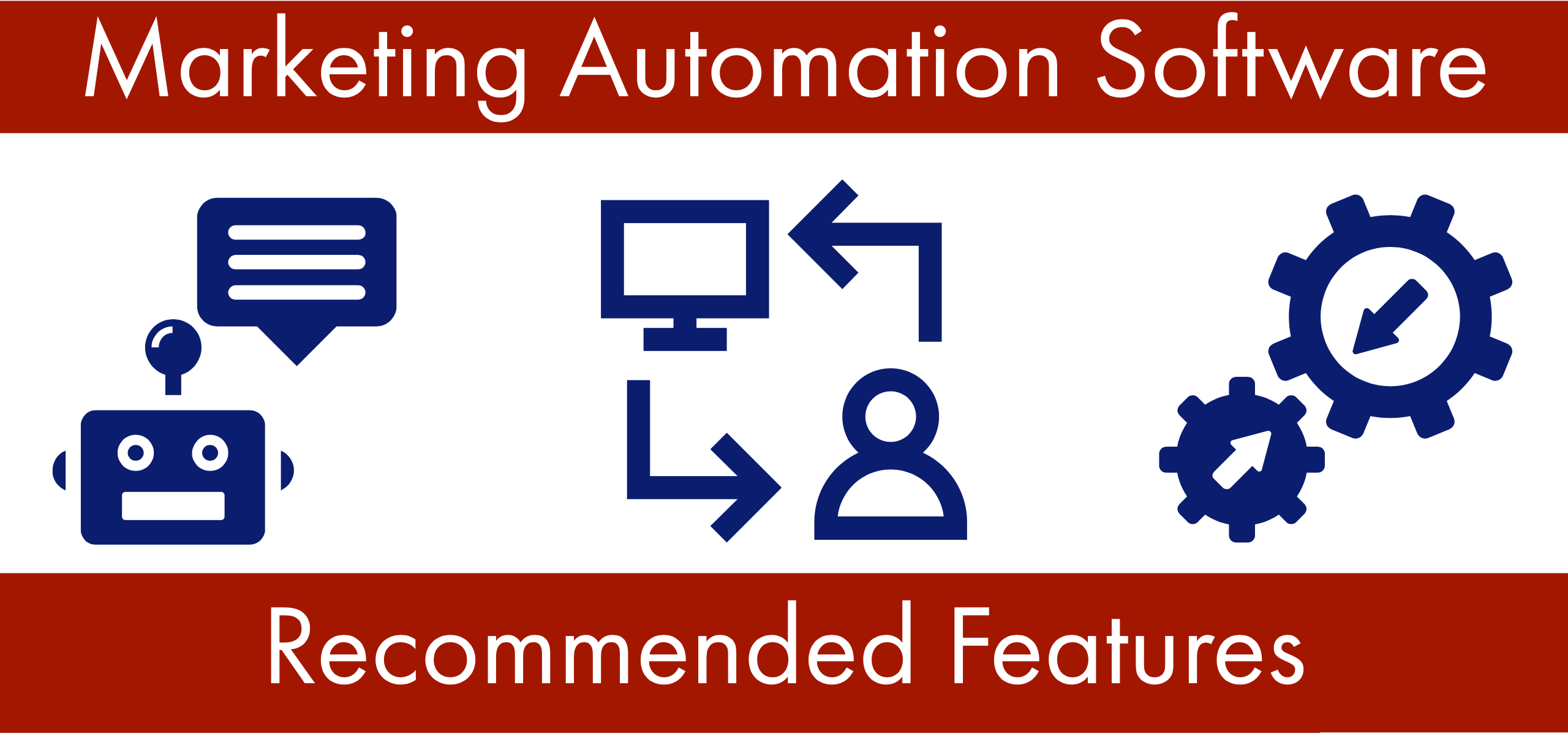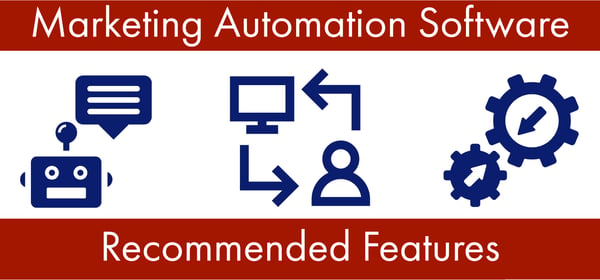If you're still using multiple pieces of software to cobble together a marketing process, you could be wasting valuable hours and money. Technology has evolved where tracking leads down the sales funnel can now happen in one place and with less effort, all thanks to automation! So where to start?
With the abundance of software options available, taking the next step may seem overwhelming. Don't worry, we'll walk you through what marketing automation should do, your best software options, and how it will benefit your marketing efforts - especially if you use an inbound strategy!
What is Marketing Automation Software?
In a nutshell, Marketing automation software is an advanced platform, usually web-based, designed to help marketers attract leads, build relationships, and move them down the sales funnel.
These services lean heavily on machine learning and artificial intelligence to analyze data and automate otherwise tedious processes marketing teams currently deal with. Consider it as a valuable supplement to your marketing and sales teams, not a replacement.
While a decade ago these tools may have been labeled as experimental and inaccurate, most have grown into reliable, even essential resources for B2C and B2B companies to grow their businesses and increase efficiency.
What Marketing Automation Software Should Do
The internet is full of misunderstandings about what marketing automation software actually does though. And, depending on the service you decide to adopt, the feature sets will vary. There are bedrock features you'll want to explore before making a decision in order to get the most bang for your buck.
Reliable AI & Machine Learning Tools
Every company will pitch its service as offered some sort of "artificial intelligence," "advanced algorithm" or "machine-learning" framework. When these terms are used, all companies are referring to is their ability to sift through thousands, even millions of data points to provide customer insights and effective engagement tools. But not all are created equal. When considering a platform, look for the following "smart" features:
- Predictive Analytics - This feature set studies how people functioned when they encountered your website, social media, content, or emails, and organized that information to predict your target customer. This helps both your marketing and sales teams by providing better insight into what customers are likely to buy at what stage in your sales funnel. Predictive analysis also helps narrow down the best methods to further engage and turn leads into buying customers.
- SEO Analysis - A big part of marketing is generating content for customers to find. But there's a better way to operate than just creating things and throwing them into the void. Services worth their price should offer some sort of feature set that analyzes keywords and helps you see which topics are getting the most traffic from search engines. In turn, this allows your business to make smart decisions on what content to create based on what's in demand.
- Chatbots - Yes, the future is now. Artificial intelligence has advanced to the point where you can rely on a machine to use conversational language to engage with potential customers. It's not a fringe feature anymore. According to a survey conducted by SurveyMonkey (in conjunction with other research firms) that as of 2018, 15 percent of American adults say they have used a chatbot to interact with a company in the prior 12 months. Think of the possibilities! A chatbot could assist with customer service, or product recommendations, freeing up valuable time for the human employees on your staff. Some chatbots are excellent. Some are horrible. Take time to test out any chatbot features to see if they will aid a customer in building a relationship, or make them rush to close the browser tab.
Content Automation
Creating content to attract and engage potential customers is a full-time job in itself. Sharing that content via multiple channels, such as email newsletters, blogs and social media is an art form that demands just as much time as the creative process. Automation tools can help make the process more streamlined. Make sure any potential marketing automation software offers features such as the following:
- Scheduling social media posts in advance.
- Repurposing older content (such as blog posts) to attract new readers.
- Email automation to help send messages with relevant and personalized content to your target audience at the exact right time.
Integration with Other Services
You'll hear the term "APIs" thrown around a lot when discussing this topic. Basically, you need to explore how much your potential marketing automation software integrates with other services. The goal is to streamline processes, not further complicate them.
If your company uses Google Apps, it's essential any platform you adopt offers pain-free access. If you use separate sales software, such as Freshsales, integration is key.
Even if you decide to adopt a full end-to-end service, such as Hubspot's CRM, it's important to pay attention to how your existing software tools will integrate.
Services We Recommend
At Rizen, our team relies on Hubspot for our entire marketing and sales process. And we love them. We think you'll love them because:

- Their software is intuitive and easy to master, even for people relatively uncomfortable using web-based software.
- The analytics are top-notch, which makes it incredibly simple for marketing and sales teams to know what’s working and what’s not. SEO tools, chatbots, and content automation are all there and easy to integrate. Employees are also working in the same platform, which promotes team unity and common goals.
- Integrations are broad. At Rizen alone, we rely on APIs that connect our Hubspot account to Slack, Google Apps, Zoom, and many more. See their full integration library here.
Choosing the Right Service
Selecting the right marketing automation software can be challenging. There are many factors to consider, and shouldn't be treated as a quick decision process. This guide can help you navigate the most important questions to ask before signing up.
Learn more about other strategies to reach today's digital-savvy customers by checking our our web guide on Inbound Marketing. We cover topics such as developing a company purpose, inbound principles, the buyer's journey, keyword research, content strategy, lead nurturing, and more!
If you need more advice, don't hesitate to contact us here at Rizen. We're here to help!





![Reignite Your Millennial Marketing Efforts With These [On Fleek] Ideas](https://blog.gorizen.com/hs-fs/hubfs/Podcast/009%20-%20Millennial%20Marketing%20Blog.gif?length=600&name=009%20-%20Millennial%20Marketing%20Blog.gif)


No Comments Yet
Let us know what you think